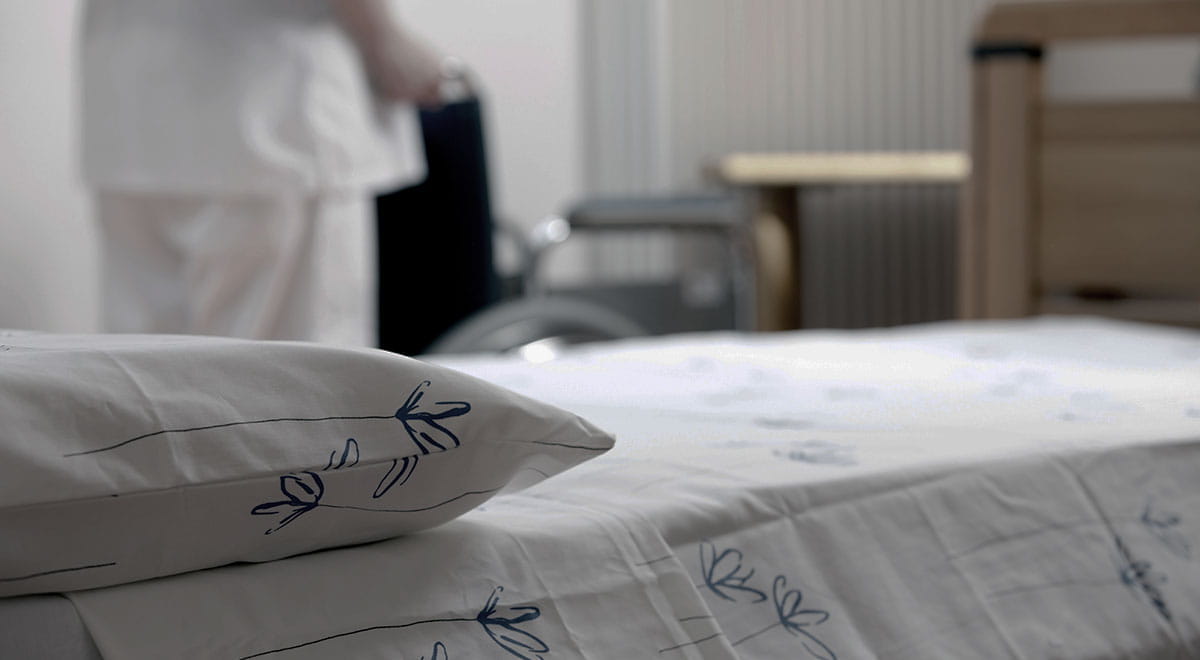Message our experts
Complete the form and one of our friendly advisors will get back to you to talk through your situation and explain how we can help.
You can expect to hear back from us within two working hours and certainly no later than 10am on the next working day.
Alternatively, if you would rather send us an email, you can do so by clicking the button below.
Send us a message
Call us now
Call us free and speak with a member of our client relationship team who will be happy to help.
0370 086 8687Lines are open from 8:30am to 8pm Monday to Friday, 9am to 5pm Saturday, and 10am to 4pm Sunday.
Message us
If you would prefer to write to us, you can send us a message by clicking below and we will get back to you Send us a message orArrange callback
Leave your name and number below for us to call you back.
Thank You
Thank you for contacting Shoosmiths Serious Injury. Your enquiry is important to us. A dedicated member from our client relationship team will be in touch with you shortly.

Care home neglect compensation
When an elderly or vulnerable person cannot look after their own basic needs a lack of proper care standards can sadly lead to neglect. These can range from failing to ensure that a resident has proper nutrition to a lack of supervision that results in the resident falling. Sometimes the wrong medication can be administered.
It’s difficult to know what to do if you think a relative or friend is being poorly cared for, or they’ve been mistreated and their dignity not respected in residential care. Our expert team can provide advice and assistance and have represented many clients who have suffered care home neglect and care home negligence.
Any of these incidents are distressing in themselves, but can also lead in some cases to physical or psychological injury or harm. It's then that family and friends may wish to think about making a claim. For example, your relative may have become dehydrated due to inadequate nursing care which results in a period of hospitalisation or bed sores, which should have been prevented or treated have led to serious injury.
Tell me more about
How do I make a claim about care home neglect
Should the vulnerable person be unable to make decisions for themselves because they no longer have the necessary mental capacity someone else, known as the 'Litigation Friend', can act on their behalf.
The Litigation Friend could be a concerned family member, someone who has already been granted Power of Attorney or appointed as a Deputy by the Court of Protection. The Litigation Friend acts for the injured person in their best interests taking decisions necessary to bring a claim.
We can give you advice and guidance where there is evidence of injury, physical or psychological, caused by neglect. Our dedicated team can advise you on which route to take and may also be able to put you in touch with various support groups.
How long will my claim about care home neglect take
This depends on a number of things such as how serious any injuries are and whether the other party admits liability and whether the police or the coroner has become involved. Here, our first priority will always be to make sure you or your relative are safe and well.
We will need to obtain any care home medical records and medical evidence from independent experts to establish if the care home negligently breached their duty of care and if there is a case they need to answer initially. We need evidence about your or your relative or friend’s current condition, what treatment they might require immediately and what they are likely to require in the future.
All this takes time, but this information is vital to allow us to recover the maximum amount of damages to which you are entitled as a result of any identified neglect and negligence. The approach that the other side chooses to adopt can also affect the time it takes to settle.
Sometimes, the Defendant will accept our evidence and our valuation. In these circumstances claims will settle more quickly than when liability is disputed. Claims can often be settled through negotiation even if liability is denied, but some can and do go to trial.
We will always aim to resolve your case as soon as possible, keeping you informed of progress every step of the way, but it will take a little time to ensure we achieve the best possible outcome.
If I have a case about care home neglect
These cases are distressing, but establishing if there is a case for a care home neglect claim is a matter of evidence and judgement. Care home neglect should also not be confused with care home abuse.
It may be difficult enough when your loved one suffers through poor administration or simple carelessness but it is all the more shocking when actual, deliberate, physical or psychological abuse is involved, as in some recent high profile care home scandals.
In cases of abuse preventing any further harm being done and ensuring your relative's immediate safety is the first priority. The police, or coroner, may be involved and relatives may be faced with a choice of civil or criminal action.
Different standards of evidence are needed for a police prosecution compared to a civil claim.
In civil claims you need to 'prove' what you allege is more likely than not to have happened. In criminal cases, proof has to be 'beyond reasonable doubt'. Good legal advice and support is essential to choose the right course of action.
More about care home neglect
One of the more obvious sign of inadequate care and neglect in care homes is untreated bed sores or pressure sores.
If not recognised and treated soon enough, bed sores can develop and cause a fatal infection.
Pressure sores or ulcers are common among people who are unable to move because of illness or old age and can be caused by friction, temperature or incontinence. They are most frequently brought on by unrelieved pressure on one part of the body.
The more severe the bed sore ulcer, the longer it takes to heal and the more susceptible the victim will be to other serious infections.
Should your relative suffer from this painful and potentially dangerous condition, it is possible that the care provided has fallen below the required standard. In that case, if harm has been caused, legal action may be considered against the care home.
Compensation for Death in Care Home
Care Home Neglect Case Study
Compensation for Death in Care Home
Shoosmiths was approached only weeks before the expiry of the limitation period, for making such claims by a family whose loved one had died while a resident in a care home.
Read all about how Shoosmiths ensured their claimants got the right compensation for their care home neglect case here.
Our Experts
-

Sarah Cunliffe
Senior Associate
Medical Negligence
Sarah qualified in September 2001 and joined Shoosmiths in 2003. Sarah is a serious injury lawyer who deals with a variety of Serious Injury claims.
View full profile -

Natasha Read
Partner
Medical Negligence
Natasha is a Partner in the Medical Negligence department at Shoosmiths. She qualified as a solicitor in 2009 after already working in clinical negligence for one year during her training contract.
View full profile
'Shoosmiths got me the rehab I needed and really helped with my family. They were fantastic throughout.'
Care Home Neglect
Don't be concerned about funding your claim and don't be put off seeking our aid. We will advise you free of charge initially and will always find a way to help that best suits your means and needs.
Why Shoosmiths















